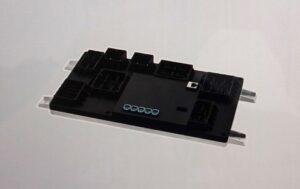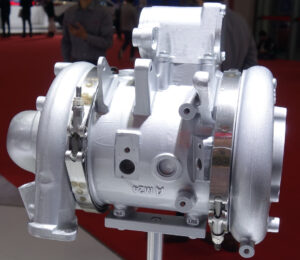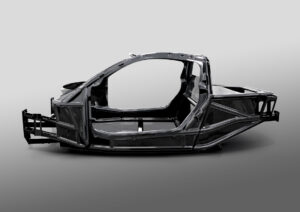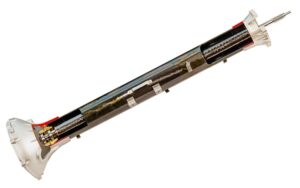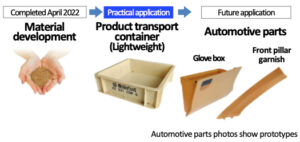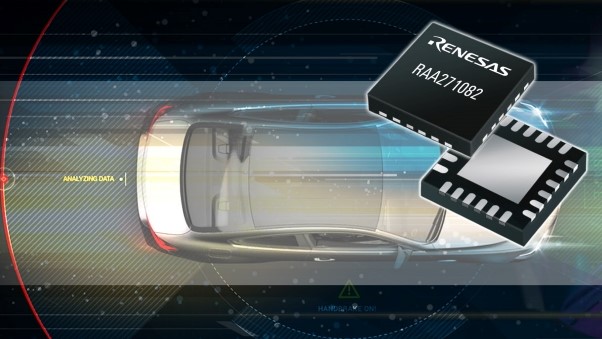
Renesas Electronics Corporation unveiled an innovative automotive power management IC (PMIC) for next-generation automotive camera applications. The RAA271082 is a versatile ISO-26262 compliant multi-rail power IC with a primary high voltage synchronous buck regulator, two secondary low voltage synchronous buck regulators, and a low voltage LDO regulator. It offers four overvoltage and undervoltage (OV/UV) monitors, I2C communications, a configurable general-purpose I/O pin, and a dedicated reset output/fault indicator. To meet stringent ASIL B metrics, the RAA271082 includes a second independent reference for OV/UV monitors, built-in self-test at power-up, independent OV/UV monitoring, and continuous CRC error checking on internal registers and I2C communications.
The highly integrated RAA271082 provides a universal power solution for automotive cameras. It is an ideal companion for Renesas’ Automotive High-Definition Link (AHL) technology that enables car manufacturers to deliver high-definition video using low-cost cables and connectors. The new PMIC simplifies power supply design for automotive camera applications requiring functional safety compliance, modules that include surround view/satellite, rearview, driver monitor, and e-mirror. The RAA271082 supports the power requirements of almost any combination of image sensor, image signal processor (ISP) and encoder technology, while also supporting direct-from-battery as well as power-over coax supply.
Key Features of the RAA271082 PMIC:
- Developed on an ISO-26262 compliant process, to support system safety goals reaching ASIL B
- High degree of programmability supports a wide assortment of automotive image sensors from all major vendors
- Provides 1A output current capability per switching regulator to support the growing power demands of the latest generation of high-resolution automotive image sensors.
- Supports general-purpose automotive MCUs with integrated reset generation, watchdog timer and programmable GPIO
- Integrates multiple components and functions to reduce overall power consumption



